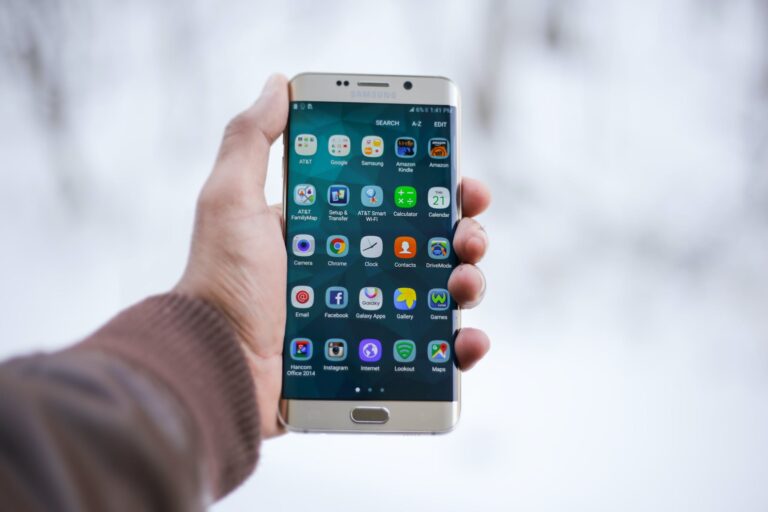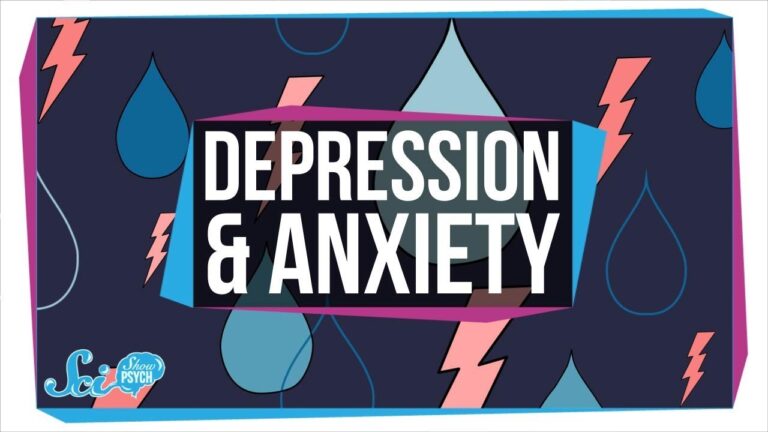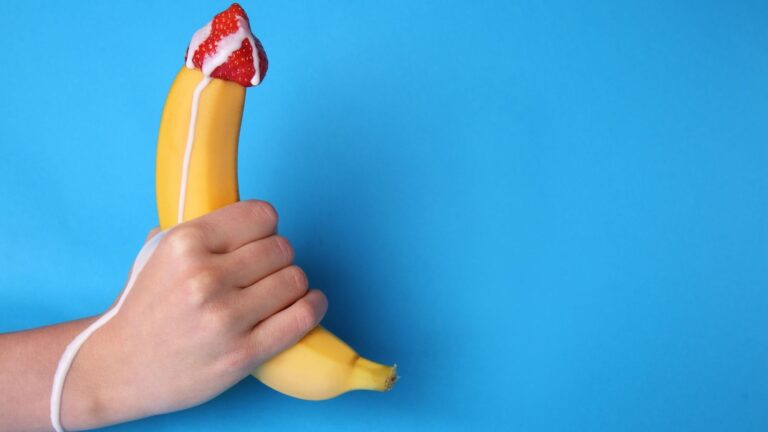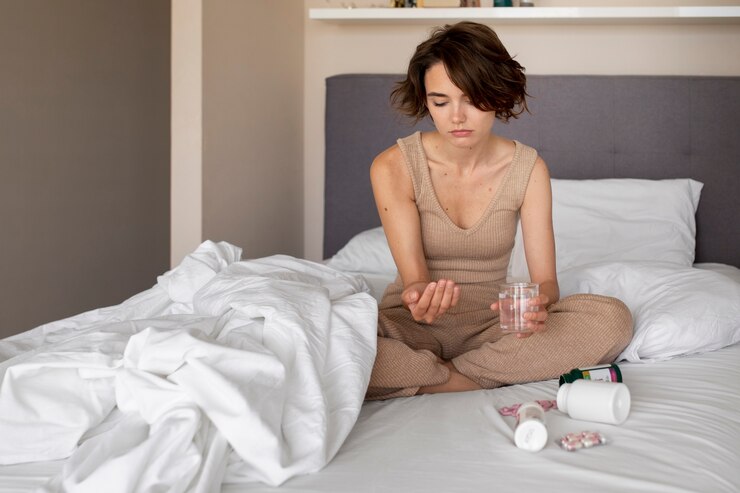Masturbation and Hair Fall: The Surprising Truth About How Solo Play Affects Your Hair Growth
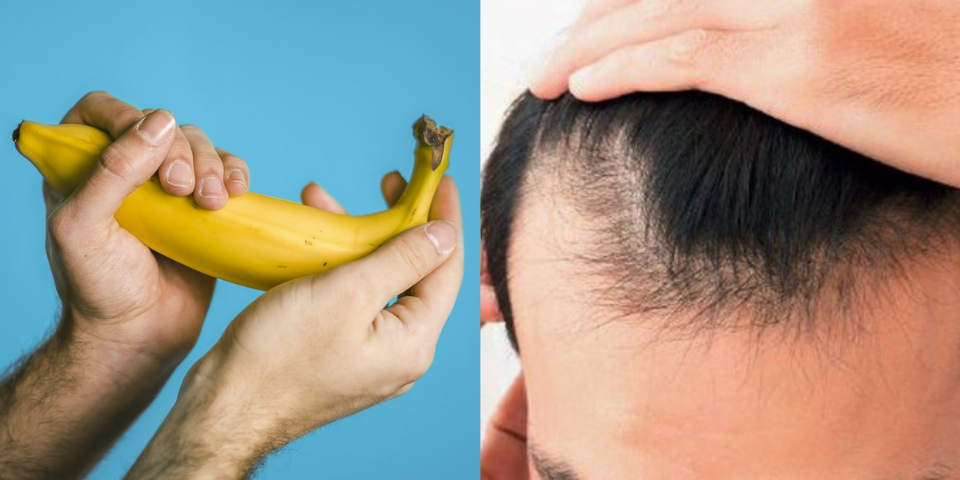
The Connection Between Self-pleasure and Hair Loss: Separating Fact from Fiction
It is not uncommon for individuals to question whether there is a connection between self-pleasure, also known as masturbation, and hair loss. This topic has sparked numerous debates and perpetuated numerous myths surrounding the potential link between the two. However, it is essential to approach this subject with a scientific mindset and separate fact from fiction.
One prevailing myth claims that masturbation leads to a decrease in hair density or even baldness. However, there is no scientific evidence to support this claim. The underlying principle behind this myth may be the idea that self-pleasure depletes the body of vital nutrients necessary for optimal hair growth. Nonetheless, research has consistently shown that the normal physiology of hair growth is not influenced by sexual activities, including masturbation. By understanding the hair growth cycle and the role of genetics, it becomes clear that hair loss is primarily determined by factors such as age, hormones, and hereditary predisposition, rather than sexual activities.
Understanding the Hair Growth Cycle: How Hair Loss Occurs Naturally

The hair growth cycle is a complex biological process that occurs naturally in the human body. Understanding this cycle is crucial in comprehending how hair loss occurs. Hair growth undergoes three distinct phases: anagen, catagen, and telogen.
During the anagen phase, which lasts for an average of 2-7 years, the hair follicles actively produce new hair cells. This is the growth phase, where hair strands can grow up to half an inch per month.
Following the anagen phase, the catagen phase begins, lasting for about 2-3 weeks. In this transitional phase, the hair follicles shrink and detach from the blood supply. Hair growth ceases, and the hair strand becomes keratinized.
Finally, the telogen phase begins and lasts approximately 2-4 months. This is the resting phase where the hair strand remains dormant before shedding. At any given time, around 10-15% of scalp hair follicles are in the telogen phase.
Hair loss occurs naturally as part of this hair growth cycle. It is normal to shed an average of 50-100 hairs per day. However, certain factors can disrupt this cycle and lead to excessive hair loss. Understanding these factors and their impact on hair health is crucial for maintaining a healthy head of hair.
The Role of Genetics in Hair Loss: Is Masturbation a Contributing Factor?
Genetics play a significant role in hair loss, and understanding this aspect is crucial when evaluating potential contributing factors. While there is extensive research on genetic predisposition to hair loss, the claim that masturbation directly affects this condition lacks scientific evidence. Many factors contribute to hair loss, including hormonal imbalances, underlying health conditions, and lifestyle choices. However, there is no credible scientific study that establishes a direct link between masturbation and genetic hair loss.
In fact, studies have indicated that hair loss occurs due to a combination of genetic and environmental factors, with genes accounting for a substantial portion. Male pattern baldness, the most common form of hair loss in men, is primarily inherited. It is linked to the presence of specific genes that impact the sensitivity of hair follicles to dihydrotestosterone (DHT), a hormone that contributes to hair thinning and eventual loss. Therefore, while genetics play a vital role in hair loss, this is unrelated to any potential effect of masturbation.
Debunking Common Myths: Does Solo Play Really Cause Hair Fall?
There is a common myth that solo play, also known as masturbation, can lead to hair fall. However, this belief lacks scientific evidence and is not supported by medical research. Numerous studies have been conducted to explore the relationship between self-pleasure and hair loss, and the consensus is clear – there is no causal link between the two.
One reason why this misconception persists is the belief that ejaculation drains the body of vital nutrients necessary for hair growth. However, it is important to note that the volume of semen released during masturbation is minuscule compared to the body’s daily nutrient requirements. Furthermore, the body is capable of replenishing these nutrients through a balanced diet. So, while nutrition plays a crucial role in hair health, the act of solo play itself does not directly impact hair fall.
The Influence of Hormones on Hair Health: Exploring the Link with Masturbation
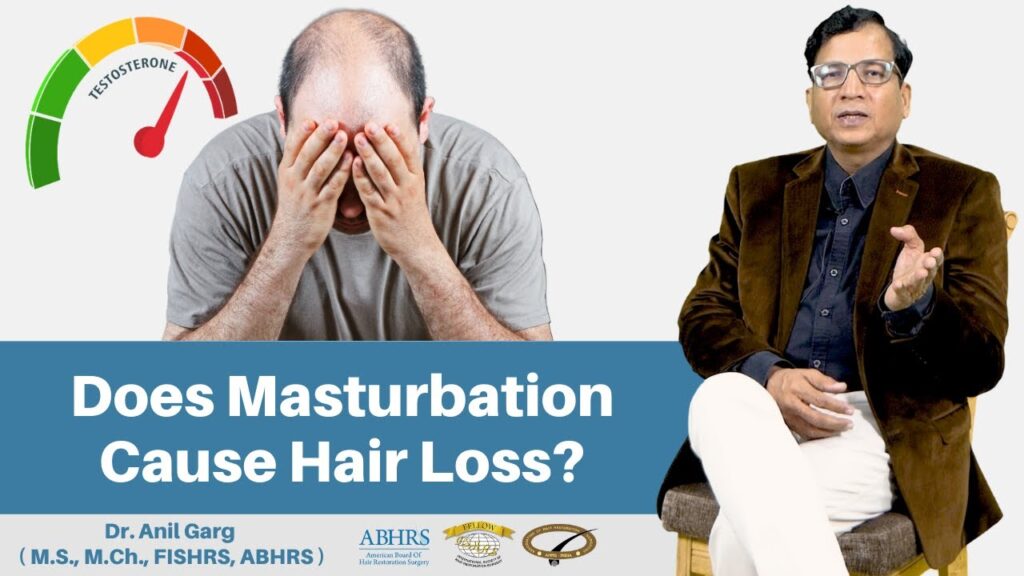
Hormones play a crucial role in maintaining the overall health of our hair. Testosterone, a hormone commonly associated with male characteristics, has been linked to hair loss in both men and women. Masturbation, being a common sexual activity, has raised questions regarding its impact on hormone levels and subsequent effects on hair health. However, scientific research has not provided conclusive evidence to suggest a direct link between masturbation and hair loss.
One study published in the International Journal of Trichology examined the influence of sexual activity on hormone levels and hair loss. The study found that sexual activity, including masturbation, did not have a significant impact on testosterone levels in men. Similarly, in women, there was no direct correlation between sexual activity and hormonal imbalances that could lead to hair loss. While hormone levels can vary during sexual arousal and orgasm, these fluctuations do not appear to be significant enough to cause hair loss.
It is important to note that hair loss, also known as alopecia, is a complex condition influenced by various factors such as genetics, hormones, and environmental factors. While masturbation may temporarily affect hormone levels, there is insufficient evidence to suggest a direct causal relationship between self-pleasure and hair loss. It is crucial to approach the topic with a balanced perspective and rely on scientific research to dispel any incorrect assumptions or myths.
Stress and Hair Loss: Examining the Impact of Solo Play on Stress Levels

When it comes to hair loss, stress is often mentioned as a potential contributing factor. However, the impact of solo play on stress levels and its connection to hair loss is a topic that requires closer examination. While stress can indeed have a detrimental effect on hair health, there is currently limited scientific evidence directly linking solo play to increased stress levels.
It is important to understand that stress can affect the body in various ways, including hair loss. When we experience stress, it can disrupt the hair growth cycle, leading to excessive shedding or even hair thinning. While some individuals may find solo play to be a stress-relieving activity, it is crucial to note that the effects of stress on hair health are multifactorial. Lifestyle factors, hormonal imbalances, and genetic predisposition also play significant roles in hair loss. Therefore, it is essential to consider the bigger picture when evaluating the impact of solo play on stress levels and hair health.
Nutritional Factors: Can Diet and Masturbation Affect Hair Growth?
The impact of diet on hair growth is a topic that has been explored extensively in scientific research. It is well-known that a balanced diet rich in essential nutrients, such as proteins, vitamins, and minerals, is crucial for maintaining healthy hair. However, the specific relationship between diet and masturbation in the context of hair growth is still a subject of debate.
While there is limited scientific evidence directly linking diet and masturbation to hair growth, experts suggest that a nutritious diet can support overall bodily functions, including those related to hair health. Adequate intake of protein, for example, is essential for the production of keratin, the protein that constitutes the majority of hair strands. Additionally, consuming a variety of vitamins, such as vitamins A, C, and E, can assist in promoting hair follicle health and stimulating hair growth.
Although specific studies on the link between masturbation and hair growth are sparse, it is important to note that hormonal changes and stress levels can indirectly impact hair health. Masturbation can have a temporary effect on hormone levels, including the release of endorphins and dopamine, which might indirectly influence hair health in some individuals. Similarly, stress, which can be either relieved or exacerbated by masturbation, has been associated with hair loss. Ultimately, more research is needed to fully understand the complex relationship between diet, masturbation, and hair growth.
Here’s a short data table on the potential influence of diet and debunking myths about masturbation affecting hair growth:
| Diet, Masturbation, and Hair Growth | Key Concepts | Credible Source |
|---|---|---|
| Diet and Overall Nutrient Intake | – Key Concept: A balanced diet, rich in essential nutrients like vitamins, minerals, and proteins, is crucial for overall health, including the health of hair follicles. Nutrient deficiencies can contribute to hair loss. | American Academy of Dermatology – Hair Loss |
| – Considerations: Ensuring adequate nutrition supports healthy hair growth, but no specific food guarantees hair growth. | ||
| Masturbation and Hair Growth | – Key Concept: There is no scientific evidence supporting a direct link between masturbation and hair loss. Hair growth is primarily influenced by genetics, hormones, and overall health. | American Academy of Dermatology – Hair Loss Myths |
| – Considerations: Hair loss and growth are complex processes influenced by various factors, and masturbation is not a causative factor. | ||
| Role of Hormones in Hair Health | – Key Concept: Hormones play a significant role in hair health. Imbalances, such as those related to stress or hormonal disorders, can contribute to hair loss. | International Journal of Trichology – Hormones and Hair Loss |
| – Considerations: Maintaining hormonal balance through a healthy lifestyle is important for overall well-being, including hair health. | ||
| Myth: Specific Foods Guarantee Hair Growth | – Key Concept: No specific food guarantees hair growth. Claims about certain foods promoting hair growth lack scientific support. | Cleveland Clinic – Hair Growth: 6 Natural Tips to Make Your Hair Grow Faster |
| – Considerations: While a nutritious diet supports overall health, no magic food can ensure rapid or guaranteed hair growth. |
The Importance of Scalp Health: Does Solo Play Impact the Scalp’s Condition?
Maintaining a healthy scalp is essential for overall hair health. While there is limited scientific research specifically exploring the impact of solo play on the scalp’s condition, it is important to understand the general factors that contribute to scalp health. The scalp, like any other part of the body, requires proper blood circulation and nutrient supply to support healthy hair growth. Factors such as a balanced diet, regular cleansing, and stimulating the scalp can promote scalp health and support optimal hair growth.
One common misconception is that solo play can directly affect scalp health and potentially lead to hair loss. However, there is currently no scientific evidence to support this claim. Hair loss is a complex issue influenced by various factors such as genetics, hormones, and overall health. While occasional stimulation of the scalp during solo play may increase blood flow to the area temporarily, it is unlikely to have a significant impact on long-term scalp health. It is important to focus on maintaining a balanced lifestyle, including proper nutrition and a consistent hair care routine, to support overall scalp health.
Hair Care Practices: How Masturbation Can Influence Hair Care Routines
Maintaining a regular hair care routine is crucial for healthy hair growth. However, there has been speculation about the impact of masturbation on hair care practices. It is important to address this topic with a scientific approach to separate fact from fiction.
When it comes to hair care practices, masturbation itself does not directly influence the health of your hair. Hair growth is primarily dependent on factors such as genetics, hormonal balance, and overall scalp health. While there may be temporary increases in blood circulation during sexual arousal, which can potentially improve nutrient delivery to the scalp, this alone does not significantly impact hair care routines. It is important to focus on established hair care practices that promote a healthy scalp and provide adequate nutrition to support hair growth.
It is crucial to note that hair loss can be influenced by several other factors, such as stress, hormonal imbalances, nutritional deficiencies, and certain medical conditions. Understanding these factors and their impact on hair health is key to developing effective hair care routines. By adopting a holistic approach that encompasses proper nutrition, stress management, and maintaining a healthy scalp, individuals can ensure optimal hair health regardless of their sexual practices.
Psychological Aspects: Understanding the Relationship Between Self-pleasure and Hair Loss Anxiety
While there have been claims suggesting a connection between self-pleasure and hair loss anxiety, it is essential to approach this topic with a scientific perspective. It is important to note that hair loss anxiety is a psychological condition characterized by excessive worry or distress related to hair shedding or thinning. While some individuals may experience anxiety about hair loss, it is crucial to separate fact from fiction when it comes to the relationship between self-pleasure and this psychological aspect.
To date, there is no scientific evidence to support a direct causal link between self-pleasure and hair loss anxiety. Hair loss is a complex issue that can be influenced by various factors such as genetics, hormonal imbalances, and underlying medical conditions. Psychological factors, including stress and anxiety, can also contribute to hair loss or exacerbate existing conditions. However, it is important to remember that self-pleasure itself is a normal and healthy aspect of human sexuality and is unlikely to be a direct cause of hair loss anxiety.
In conclusion, it is essential to approach the topic of self-pleasure and hair loss anxiety with a scientific and evidence-based perspective. While psychological factors can contribute to hair loss, there is no scientific proof to suggest a direct causal relationship between self-pleasure and this particular type of anxiety. It is always recommended to consult a healthcare professional or a mental health specialist for a comprehensive evaluation and guidance if hair loss anxiety becomes a persistent issue.
Tips for Maintaining Healthy Hair: Balancing Solo Play and Hair Care
Maintaining healthy hair is a priority for many individuals, but there are often questions about the role of solo play in this process. It is important to note that there is limited scientific evidence supporting a direct connection between self-pleasure and hair care. Hair health primarily depends on a variety of factors such as genetics, hormones, stress levels, diet, scalp condition, and hair care routines. While solo play may have some impact on these factors, it is crucial to maintain a balanced approach to ensure overall hair health.
One key aspect to consider is the potential effect of solo play on stress levels. High levels of stress can contribute to hair loss, and finding healthy ways to manage stress is essential. Engaging in regular exercise, practicing relaxation techniques, and maintaining a balanced lifestyle can all support hair growth. It is also important to ensure a nutrient-rich diet, as deficiencies in certain vitamins and minerals can affect hair health. Incorporating foods rich in protein, vitamins A, C, and E, as well as minerals like iron and zinc, can help promote healthy hair growth. Good scalp hygiene, including regular cleansing and gentle massaging, can also play a significant role in maintaining optimal hair condition.
In conclusion, while the topic of solo play and its impact on hair health is often debated, it is important to approach this issue from a holistic perspective. Maintaining healthy hair involves a combination of factors, including genetics, hormones, stress management, proper nutrition, and scalp care. While solo play may have some influence on these factors, it is just one piece of the puzzle. A balanced approach that includes regular exercise, stress reduction techniques, a nutrient-rich diet, and proper hair care practices is crucial in maintaining overall hair health.
Seeking Professional Help: When Should You Consult a Hair Specialist About Hair Loss?
When it comes to hair loss, it can be challenging to determine when it’s appropriate to seek professional help from a hair specialist. While occasional shedding is normal, excessive hair loss may signify an underlying issue that requires further investigation. If you notice a significant increase in hair fall over a prolonged period, it may be time to consider consulting a hair specialist. An expert in this field can evaluate your condition, provide an accurate diagnosis, and recommend appropriate treatment options.
Additionally, it is important to seek professional help if you experience sudden and severe hair loss, especially if you have no family history of hair loss or other known contributing factors. This could be a sign of an underlying medical condition that requires immediate attention. Furthermore, if your hair loss is accompanied by other symptoms such as itching, redness, or patches of hair loss, it is essential to consult a hair specialist in order to determine the cause and appropriate treatment. Early intervention can significantly increase the likelihood of successful treatment and hair regrowth.
Can self-pleasure really lead to hair loss?
No, there is no scientific evidence to support the claim that self-pleasure causes hair loss. Hair loss is typically caused by factors such as genetics, hormonal imbalances, stress, and certain medical conditions.
How does the hair growth cycle relate to hair loss?
The hair growth cycle consists of three phases: anagen (growth phase), catagen (transition phase), and telogen (resting phase). Hair loss occurs when the hair follicles enter the telogen phase prematurely, causing the hair to shed.
Is genetics a contributing factor to hair loss?
Yes, genetics play a significant role in hair loss. If you have a family history of hair loss, you are more likely to experience it yourself. Masturbation does not have a direct impact on genetic factors related to hair loss.
Does self-pleasure really cause hair fall?
No, there is no scientific evidence to support the claim that self-pleasure causes hair fall. Hair fall is primarily influenced by factors such as genetics, hormones, stress, and scalp health.
How do hormones affect hair health?
Hormonal imbalances can contribute to hair loss. However, there is no proven link between self-pleasure and hormonal imbalances that directly lead to hair loss.
Can self-pleasure increase stress levels and contribute to hair loss?
Masturbation can actually have stress-relieving effects and promote relaxation. It is unlikely that self-pleasure alone would cause significant stress levels that contribute to hair loss.
Can diet and self-pleasure affect hair growth?
Diet plays a crucial role in overall hair health, but there is no direct connection between self-pleasure and hair growth. Maintaining a balanced diet and proper nutrition is essential for healthy hair growth.
Does self-pleasure affect the condition of the scalp?
There is no scientific evidence to suggest that self-pleasure directly impacts the condition of the scalp. However, maintaining good scalp hygiene and avoiding excessive scalp irritation is important for overall hair health.
How can self-pleasure influence hair care routines?
Self-pleasure itself does not directly influence hair care routines. However, excessive hair manipulation or rough handling during self-pleasure could potentially damage the hair strands if not done gently.
Can self-pleasure lead to anxiety about hair loss?
Some individuals may experience anxiety or worry about hair loss due to misconceptions or myths surrounding self-pleasure. It is important to understand that there is no scientific evidence linking self-pleasure to hair loss.
When should I consult a hair specialist about hair loss?
If you are experiencing excessive hair loss, noticeable thinning, or any concerns about your hair health, it is advisable to consult a hair specialist. They can help determine the underlying causes of your hair loss and recommend appropriate treatments or lifestyle changes.

